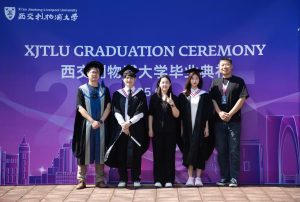The Digital Rule of Law and ESG: Evidence from Smart Courts
Organised by: RCE 1 (Sustainability and ESG)
Presentation Title: The Digital Rule of Law and ESG: Evidence from Smart Courts
Time and Date: 15:00-16:00 Friday, 1st November 2024 (Beijing Time)
Language: English
Onsite location: BS 4114
Online platform: Tencent Meeting (Mainland China version)
- Meeting Link: https://meeting.tencent.com/dm/FNnRCml6BRxE
- Meeting ID: 295-489-329
Abstract:
This study adopts the perspective of China’s Smart Court initiative to investigate how improvements in judicial efficiency, resulting from digital legal reforms, impact corporate ESG performance. On January 29, 2016, the Chief Justice of the Supreme People’s Court introduced the concept of “Smart Court” to apply digital technologies in judicial processes, achieve full digitalization of court operations, and promote modernization of the judiciary. By 2020, the Smart Court system was largely established, with courts at all levels demonstrating significant improvements in service, trial, enforcement, and management efficiency. Using the Smart Court initiative as a quasi-natural experiment and a sample of A-share listed firms in China from 2010 to 2022, this study employs a difference-in-differences model to empirically assess the effect of digital legal reforms on corporate ESG performance. The findings reveal that Smart Court construction significantly improves ESG performance, and these results hold across robustness checks including parallel trend tests, exclusion of policy interference, propensity score matching, redefinition of treatment and control groups, and placebo tests. Mechanism analysis shows that Smart Court reforms primarily influence corporate ESG performance through increased litigation pressure, enhanced environmental governance, and reduced information asymmetry. Heterogeneity analysis suggests that these effects are more pronounced in firms with greater local government intervention, lower levels of judicial transparency, larger employee sizes, and higher institutional ownership. Additionally, this study examines the differential impacts on various ESG sub-dimensions and validates the positive effect of Smart Court reforms on ESG performance after controlling for greenwashing.
Presenter: Prof. Feng He
Prof. Feng He, Doctor of Economics, Doctor of Management, is currently professor of Finance at Capital University of Economics and Business, doctoral supervisor, Tianjin "131" innovative talent. In 2015, he received a PhD in Economics from Paris University and a PhD in Management from Tianjin University. His research interests include corporate finance, financial technology and risk management, and derivatives markets. He currently serves as deputy editor of International Review of Financial Analysis, deputy editor of International Journal of Finance and Economics, deputy secretary general of China Derivatives Youth Forum, member of the Youth Working Committee of the Chinese Society of Advanced Selection Law and Economic Mathematics.
In the past 5 years, he has published more than 30 articles in high-level journals in both Chinese and English and has been in charge of the general project of National Social Science Foundation "Research on the impact mechanism of Corporate Social Responsibility on the transparency of Listed Companies in the New Media Environment", in charge of the research of China Association for Science and Technology "High-end Science and Technology Innovation Think Tank Youth Project", in charge of the National Natural Science Foundation Youth Project and Post-doctoral Science Fund project.








